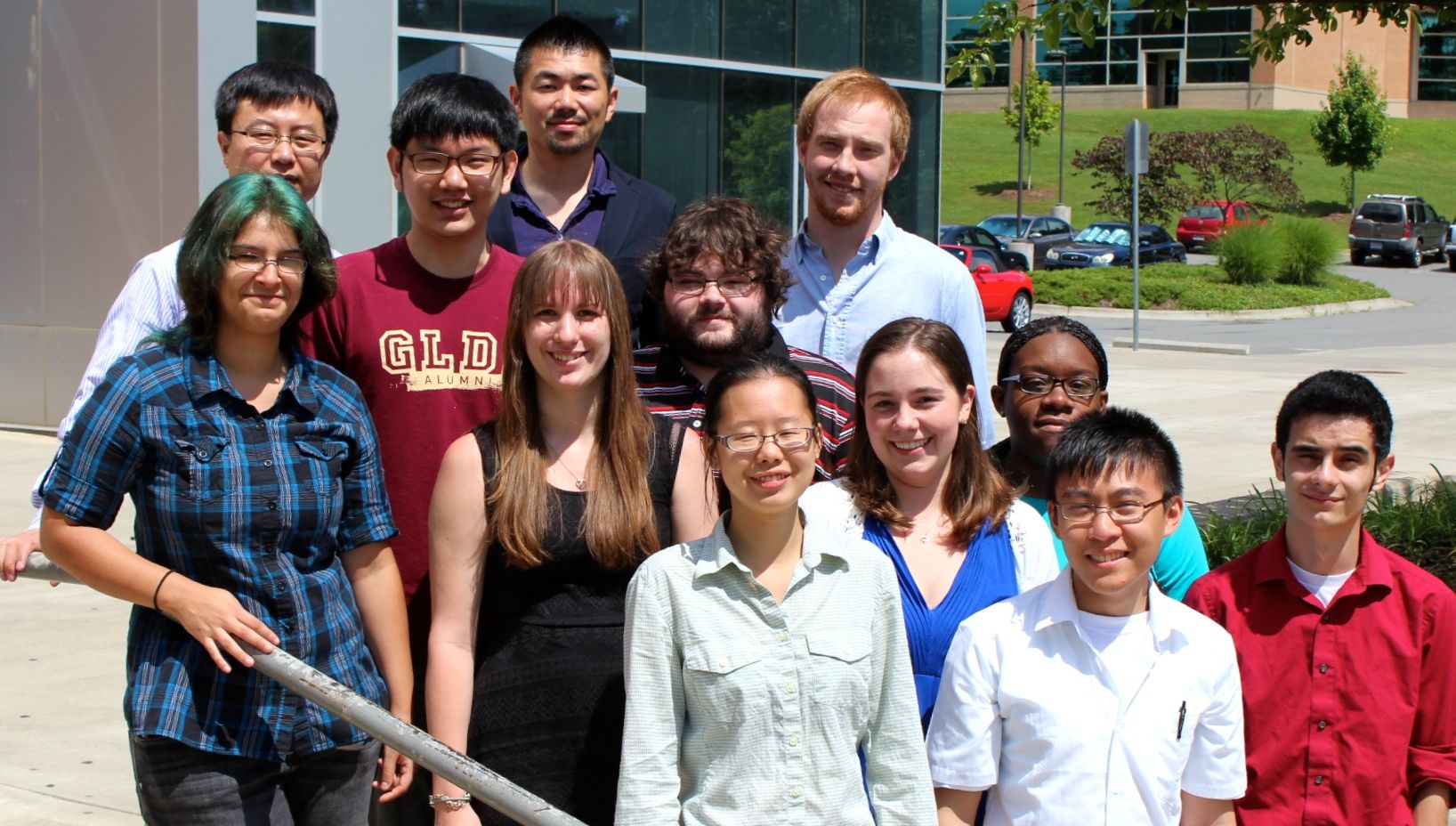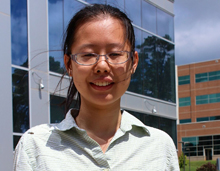Students from across nation perform cyber security research at UALR
This summer, 10 scholars representing competitive colleges from across the nation are in Little Rock performing research that may prove vital to decreasing the tide of cyber attacks and increasing knowledge in the emerging field of cyber security.
The students were recruited through a National Science Foundation grant-funded project, “REU Site: CyberSAFE@UALR: Cyber Security and Forensics Research at the University of Arkansas at Little Rock.”

UALR is the only Computer and Information Science and Engineering REU (Research Experiences for Undergraduates) host site in Arkansas and the only new REU site selected for its focus on cyber security and forensics in the U.S., according to Dr. Mengjun Xie, UALR computer science assistant professor.
He and Dr. Kenji Yoshigoe, computer science department chair and associate professor, submitted the $289,662 grant to support an eight-week intensive student research project for the next three summers at UALR.
“The program, which began June 2 and runs through July 25, has so far been quite successful,” said Xie. “These students are advancing our understanding of cyber attacks by helping us explore new techniques for collecting and analyzing digital evidence.” 
Internet hackers have exposed the personal information of roughly half of all American adults in the last 12 months, according to a U.S. Senate committee statement issued in support of federal funding for cyber security.
At the same time, 1 million jobs are expected to be created in the field of cyber security by 2017. Researchers agree that having enough qualified people to take those jobs will be critical.
Liang Zhang, a 2012 graduate of Little Rock Central High School now enrolled at Cornell University in New York, is among the researchers looking into more secure and user-friendly approaches to protecting people on their smartphones, social networks, apps and computing cloud data.
The highly structured 40-hour work week can be intense, but is not too overwhelming, according to Zhang.
“It’s a different type of summer play,” she said, with a chuckle. “It is really important research … but it is also really cool.”
Cornell does not offer this specific type of research, said Zhang, a double major in statistics and information science, who chose the UALR site over another in California because of its particular research focus on the growing field of cyber security.
For her effort, she and the other nine participants receive a $4,000 stipend, travel expenses, and housing and meals.
Applicants to the program must be U.S. citizens or permanent residents with a 3.0 or higher grade point average. They are rising sophomores, juniors, or seniors majoring in computer science, computer engineering, math, physics, electrical engineering, or another computing-related major.
Xie said priority was given to applicants who are underrepresented in the computing field or who are enrolled in a minority, women’s, or non-doctoral institution.
Interestingly, Zhang participated in a high school research program hosted by the Department of Engineering and Information Technology at UALR two years ago.
“I believe this is a great example demonstrating the effect of UALR’s summer research programs, which help local students pursue their education in top universities and also attract bright students to contribute to scientific discoveries,” said Xie.
UALR is a National Security Agency-designated Center of Academic Excellence in Information Assurance Education. In addition, the campus offers the Center for Excellence for Assurance, Security, and Software Usability, Research, and Education (ASSURE) and Computational Research Center in the Donaghey College of Engineering and Information Technology, both under the direction of Yoshigoe.
Learn more at UALR Department of Computer Science.
Keep up with what’s happening; Subscribe to UALR Now.